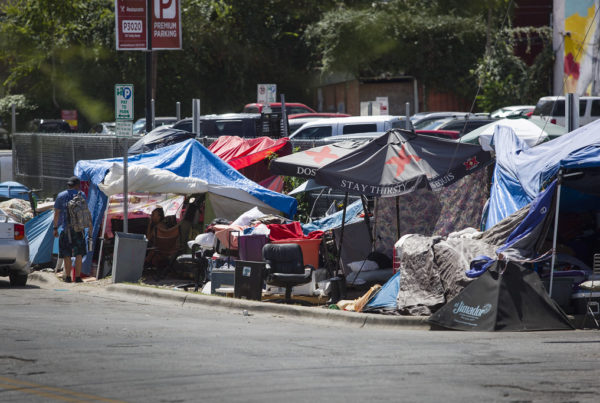There are few factors more influential on the Texas economy, and even on the way government works, than the price of a barrel of oil. A change of a few dollars either way in the price of West Texas Intermediate Crude has a massive effect on the state’s financial health. Thanks to historic production in the Permian Basin, the flow of oil has been strong, and production is at near record levels. But how long will the oil boom last, and at what cost?
Mose Buchele, energy and environment reporter for KUT-Austin, says people across the state feel the impact of the energy-driven economic boom – both positive and negative.
“One of the main ways that people are experiencing this outside of West Texas is pipeline construction … sometimes very controversial projects,” Buchele says. “Right here near Austin, we have the Permian Highway Pipeline that’s going to be natural gas – a lot of local opposition in some places to that – crude oil pipelines coming in, heading out to the Gulf Coast and then on the Gulf Coast, big shipping investments in petrochemicals.”
Buchele says that by some estimates there is enough natural gas in West Texas to power every home in the state. But because there is no infrastructure to transport it, the gas ends up being flared and ultimately contaminates the environment.
“There’s a new pipeline that’s just opened up in Corpus Christi,” Buchele says. “This other Permian Highway Pipeline would take that natural gas and bring it to market. The argument in favor is that you’d get away from that waste.”
But some groups of citizens living near pipelines oppose the construction of fossil fuel infrastructure because of climate and environmental concerns, Buchele says.
Though some in Texas have suggested that economic boom conditions in Texas could be permanent, Buchele says industry experts are bracing for a possible bust, at the hands of Wall Street.
“This whole thing has been funded by a lot of investment,” Buchele says. “But the people who made those Investments are not seeing the kinds of returns that they might like to see so far. There’s tons of oil coming out of the ground … but if that dries up, and it’s already starting to … then you might start seeing some real trouble.”
A lot of the investments were made when the price of a barrel of crude oil was $100, but now that the price is down to about $50, a number of small companies are expected to declare bankruptcy, Buchele says.
“This is one of the reasons you’re starting to see more of these consolidations to bigger companies buying up little ones,” Buchele says. “They’re trying to find ways to pick out more profit in the margins, but it’s all tied to that dollar per barrel. And that’s something that no one person can control that. It depends on so many different things that there’s always this element of a gamble to it.”
Written by :Antonio Cueto.














